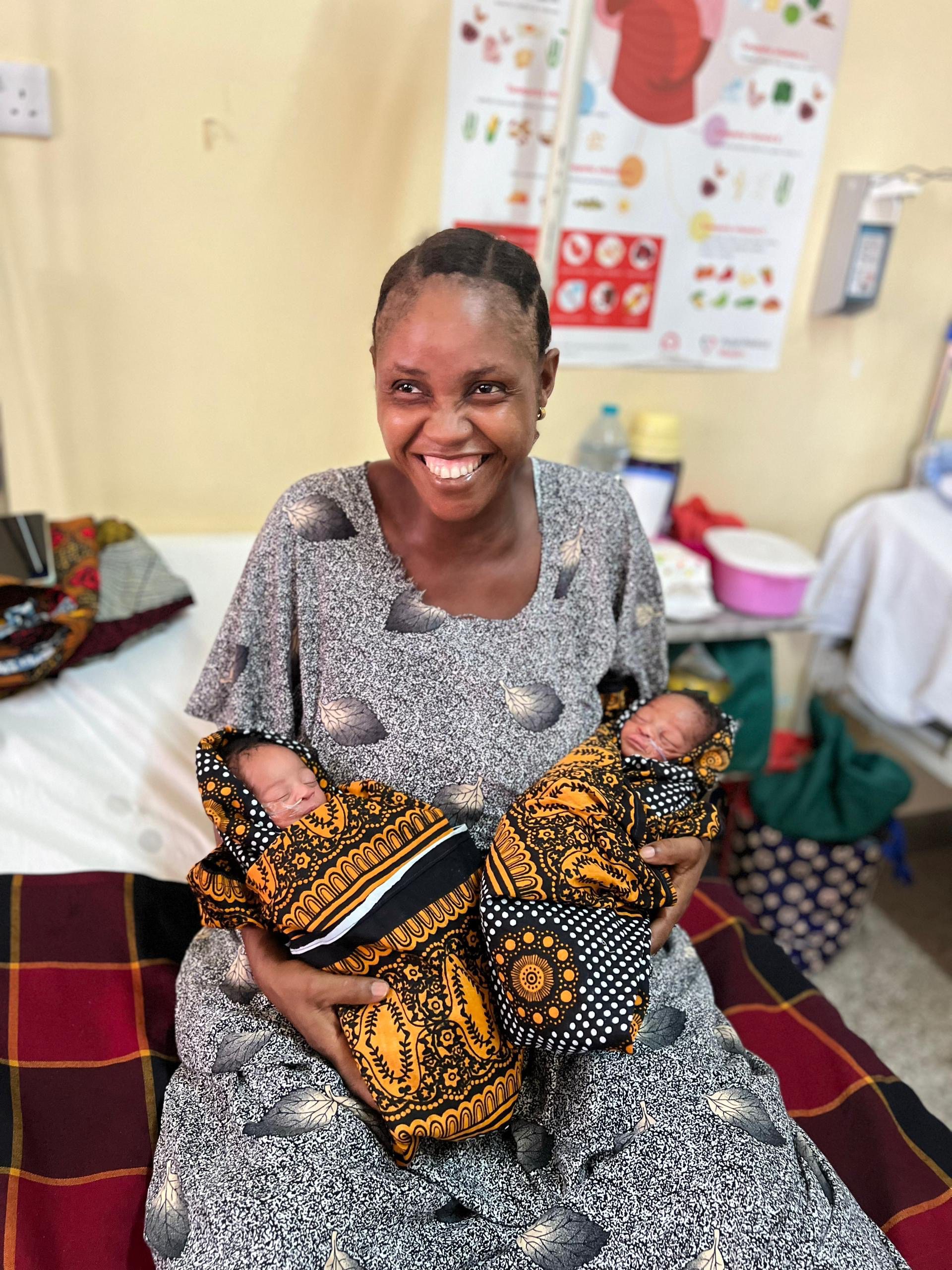Vor wenigen Tagen kam Dr. Solveig Groß, Gynäkologin von ihrem erneuten Einsatz im St. Walburg‘s Krankenhaus in Tansania zurück. Seit Anfang Dezember hatte sie das Team der Geburtshilfe unterstützt und erstaunlicherweise wurden in diesen Wochen weit mehr Zwillinge entbunden, als sonst. Darunter einige Beckenendlagen und somit alles komplexe und riskante Fälle, doch zum Glück lauter spontane Geburten. Dr. Kasoga, dem ärztlichen Direktor des Krankenhauses und selbst Gynäkologe, ist die Qualität der Geburtshilfe ein großes Anliegen, um schon durch eine gute Geburtsvorbereitung u.a. im Rahmen der Vorsorgeuntersuchungen des Community Health Projekts direkt in den Dörfern Risikoschwangerschaften zu identifizieren und die richtigen Maßnahmen zu ergreifen.
In diesem Jahr hat Dr. Kasoga eine interessante Studie durchgeführt und am 16. Dezember 2024 veröffentlicht im „African Journal of Midvifery and Women‘s Health“. Diese zeigt, dass es für Frauen mit Zwillingsschwangerschaften, die ja per se Risikoschwangerschaften sind, ebenso für Frauen aus entfernten Dörfern, die viele Stunden zu Fuß zum Krankenhaus gehen müssen, wenn die Geburt sich ankündigt, und natürlich für alle Frauen mit schwierigen Schwangerschaftsverläufen, einen messbaren positiven Effekt hatte, schon Tage vor dem Einsetzen der Wehen zum Krankenhaus zu kommen und im Boarding House bis zur Geburt zu bleiben, damit sie einen kurzen Weg in den Kreissaal haben und sofort professionelle Geburtshilfe erhalten. Auf diese Art und Weise wird die Anzahl der kritischen Geburtsverläufe signifikant verringert. Ein großer Schritt, um der in Tansania immer noch sehr hohen Mutter- Kind-Sterblichkeit während der Geburt entgegenzuwirken.



